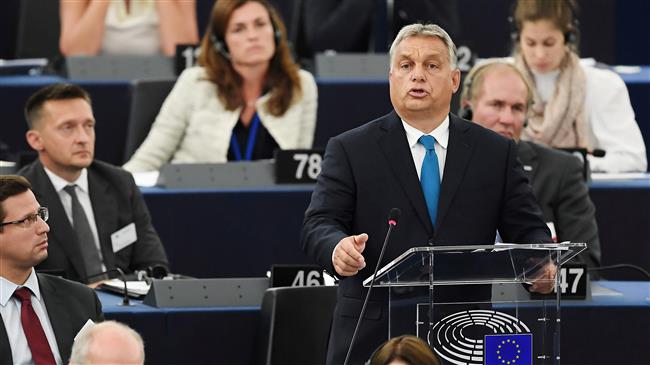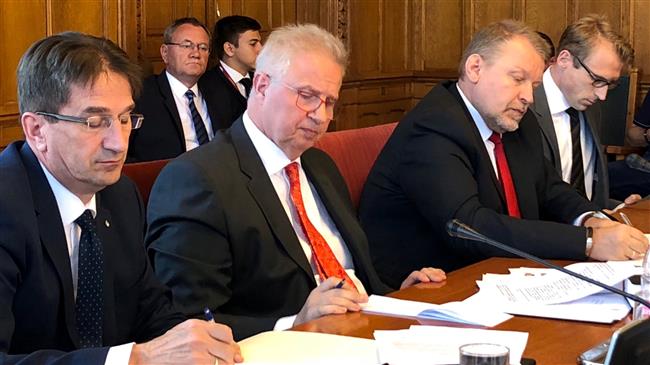MEPs slam Hungary's 'threat' to democracy
The European Parliament on Wednesday launched an action that could unleash unprecedented political sanctions against Viktor Orban's populist Hungarian government for posing a "systemic threat" to the EU's founding values.
The vote amounts to a stunning political blow for Prime Minister Orban, who had told the parliament on Tuesday that a scathing report leading to the vote was an insult to Hungary's honor and people.
Hungarian Foreign Minister Peter Szijjarto wasted little time in slamming the vote as "nothing less than the petty revenge of pro-immigration politicians."
With elections for a new parliament in May 2019, the vote reflects growing pushback among traditional parties in Europe against the rise of populists, who oppose migration and are accused of undermining the rule of law.
Adopted by 448 votes for to 197 against and with 48 abstentions, the motion marked the first time the parliament has itself initiated steps under Article Seven of the European Union's treaty. An earlier action against Poland was initiated by the EU executive.
The vote was based on a report that voiced concerns about judicial independence, corruption, freedom of expression, academic freedom, religious freedom, and the rights of minorities and refugees under eight years of Orban rule.

The vote takes the first steps under Article 7 of the EU Treaty, known by some in Brussels as the "nuclear option," which could ultimately strip Hungary of its EU voting rights.
Other EU governments could halt any further action, however, and Poland has warned it would do so.
In July, the EU executive body warned it could take Budapest to the European Court of Justice over laws under which anyone assisting an undocumented migrant could be jailed for a year.
The top EU court could impose fines, which would be less drastic for Hungary than losing its voting rights.
The vote was hailed as "historic" by Berber Biala-Hettinga, Amnesty International's expert on human rights in the EU.
"The European Parliament rightly stood up for the Hungarian people and for the EU. They made it clear that human rights, the rule of law and democratic values are not up for negotiation," she said.
(Source: AFP)
President Yoon Suk Yeol to be removed from office
At least 19 Gazans killed by Israeli airstrikes since dawn: Medics
Leader: Iran neither has nor needs proxy forces
US fighter aircraft shot down ‘in friendly fire’ amid aggression on Yemen
Yemeni FM: Israel’s sponsors accountable for ongoing aggression on Sana’a
Eight Palestinians killed as Israel attacks Gaza school, hospitals
VIDEO | Rome, Milan host new protests in solidarity with Palestinians
Dec. 21: ‘Axis of Resistance’ operations against Israeli occupation














 This makes it easy to access the Press TV website
This makes it easy to access the Press TV website